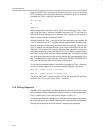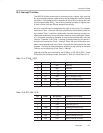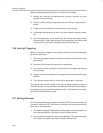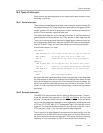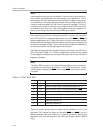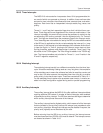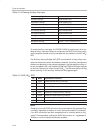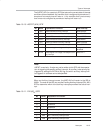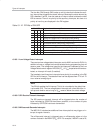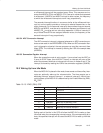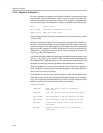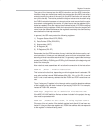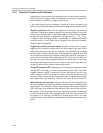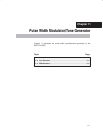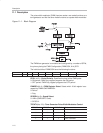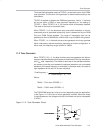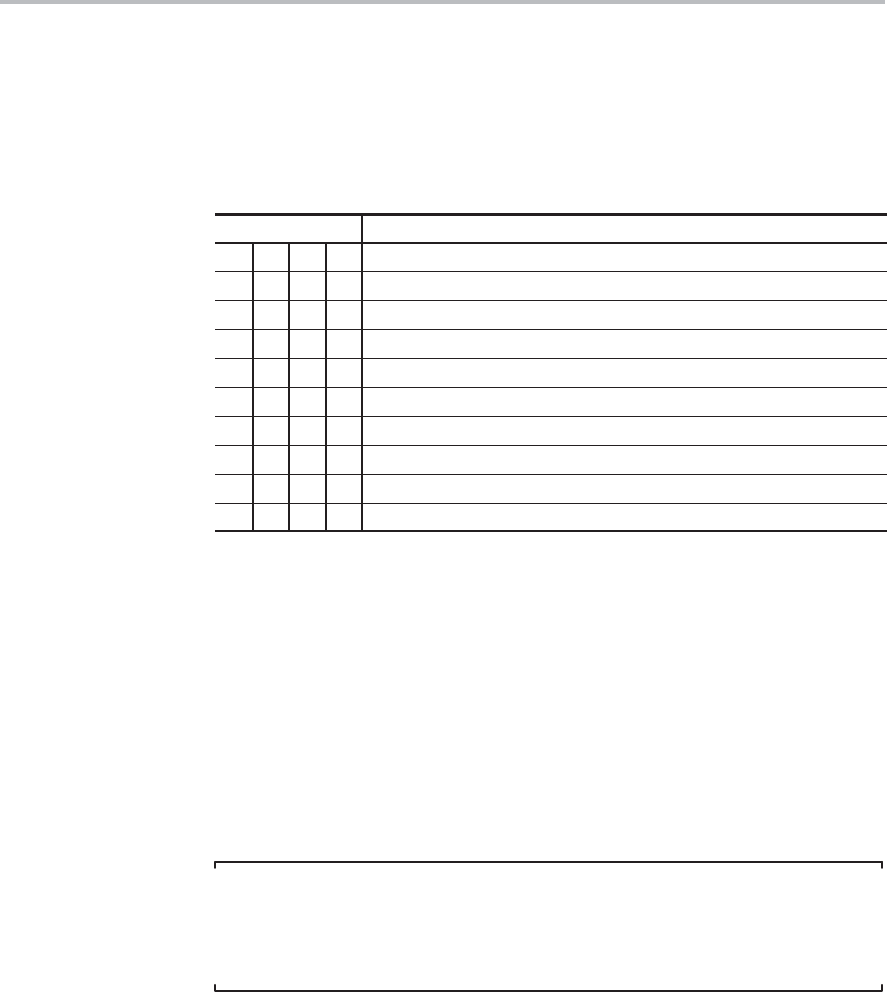
Types of Interrupts
10-14
The four bits, PAI0 through PAI3, make up a 4-bit value that indicates the auxil-
iary interrupt that triggered the actual interrupt. Because the value returned by
PAI is between 0 and 8, it can be used as an index or offset to determine what
ISR to execute. There is no priority to the aquxiliary interrupts, but there is a
priority to how they are displayed in the PAI register.
Table 10−12. PPI Bits of PAI SFR
PAIx BITS Explanation of Interrupt/Event
3 2 1 0
0 0 0 0 No pending peripheral IRQ
0 0 0 1 Digital low-voltage/breakpoint IRQ or lower priority IRQ pending
0 0 1 0 Analog low-voltage IRQ or lower priority IRQ pending
0 0 1 1 SPI receive IRQ or lower priority IRQ pending
0 1 0 0 SPI transmit IRQ or lower priority IRQ pending
0 1 0 1 One millisecond system timer IRQ or lower priority IRQ pending
0 1 1 0 ADC conversion IRQ or lower priority IRQ pending
0 1 1 1 Accumulator IRQ or lower priority IRQ pending
1 0 0 0 One second system timer IRQ pending
10.8.5.1 Low-Voltage Detect Interrupts
There are two low-voltage detect interrupts: one for AV
DD
and one for DV
DD
. In
addition to these, a voltage level can be selected during programming that will
cause a reset. The voltage level used for the interrupts is selected by the Low
Voltage Detect control register LVDCON (E7
H
). If V
DD
drops below the level se-
lected, an interrupt will result (if enabled).
The breakpoint and these two interrupts have priority for encoding in the PAI
SFR for the AI interrupt. The detection level can be adjusted from 2.7V to 4.7V
or an external analog signal.
Note:
The EAI bit enables the AI Interrupt. This bit is not subject to the global inter-
rupt enable (EA). The low-voltage detect interrupts are a level-sensitive in-
terrupt and remains set as long as V
DD
remains below the select voltage.
10.8.5.2 SPI Receive/Transmit Interrupts
The SPI receive or transmit interrupt will be triggered when the number of
bytes indicated by SPIRCON have been received, or the number of bytes
indicated by SPITCON have been transmitted.
10.8.5.3 Milliseconds/Seconds Interrupts
The MSC1210 includes two additional timer interrupts that may trigger an in-
terrupt at regular intervals.
The milliseconds interrupt is triggered every n milliseconds, where n is the
number of stored in the MSINT (FA
H
) SFR. For example, if MSINT is set to 20,



